The most important thing for a professional barista is skill or appearance? How to become a professional barista?
Professional coffee knowledge exchange more coffee bean information please follow the coffee workshop (Wechat official account cafe_style)
The brewing technology and production technology of coffee represent the professional level of baristas.
Many people think that to mix a cup of coffee is to put the coffee powder into the cup and then add water and milk to mix it well. In fact, this is a very common misunderstanding and makes people think that baristas are an easy industry to enter.
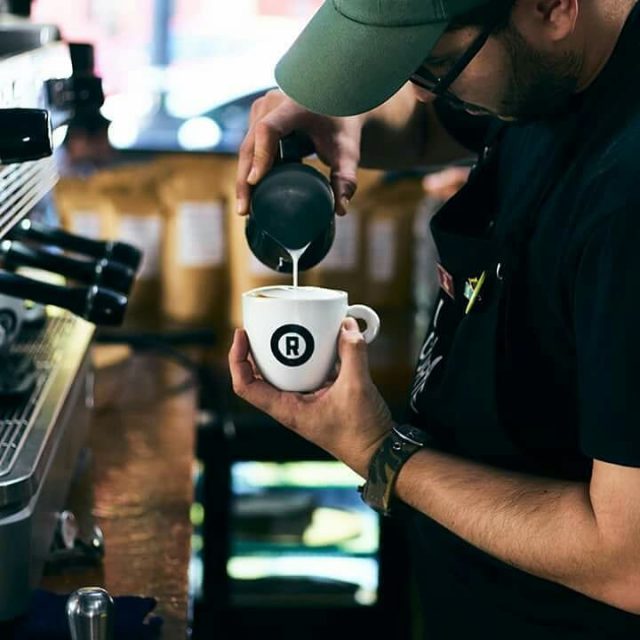
At the same time, in the eyes of many people, including some baristas themselves, they will also feel that the technology of making coffee is the most concrete manifestation of the professionalism of baristas. From the pictures, videos and even the popular Douyin, you can see a lot of "pull flower gods" and "brewing gods" who show off their good skills. Of course, I'm not questioning the professionalism of these gods, I just think, too many people think that only by playing with coffee to a different level can we be considered professional. I have to say, this is a misunderstanding.


Have you practiced your "basic skills" before talking about technology?

Why are the basic skills of domestic baristas worse than those of foreign countries? Or to put it another way, the level of expertise is worse than that of foreign countries? (from the international professional competitions of various coffee categories, the ranking and ranking of Chinese players can be known.) is it really just a matter of starting late?
I think this is a question of learning the coffee atmosphere: most of the younger generation of baristas in China learn coffee because of pulling flowers. To put it bluntly, most baristas who can pull flowers in China only care about how many patterns they can pull, how many leaves and hearts they can pull on a cup of coffee, what kind of patterns they can pull with each other, and so on.
Excuse me: have you finished your basic skills of espresso? Are you done? Ask yourself again, how stable are your basic skills?


Professional = focus + dedication

When I stood at the bar in a cafe, I saw the most coffee lovers, including many colleagues who "kicking". Pay special attention to the barista's hand flushing techniques: how many seconds of steaming (counting in mind), a few paragraphs, drawing a few circles, powder / water ratio, how long it took, and whether the current was strong or not. They may not want to judge whether baristas are doing well, but to learn and study baristas' skills.
To be honest, I used to be like this, but now when I go to visit the store, I pay more attention not to the "technology" of hand brewing, but to what beans they have and whether I like the coffee they drink.
When many people watch the video, they will deliberately look at the master's ability to control water, especially the method of water injection, or the parameters of cooking. But I also suggest that you watch the video of the hand race and listen to the contestants introduce the beans and the extraction scheme used for this bean. Instead of being concerned about drawing a few circles when injecting water, it is better to understand the characteristics of the bean itself and the principle of extraction.
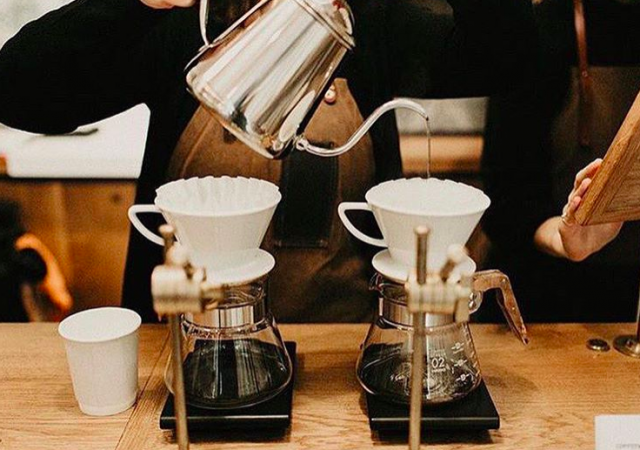
Apart from the atmosphere and environment, I hope you will pay more attention to something other than technology when baristas brew coffee.
Because besides making coffee, baristas have other jobs to take care of. Such as cleaning, service skills, communication, daily operation and necessary coffee brewing skills. In addition, of course, you should take care of all the work in the coffee bar, such as cleaning and shopping, and so on. Knowledge is important, technology is important, responsibility is important, there is another key work is service, through communication with guests, the use of their own professional knowledge, to prepare the most suitable for the taste of coffee, is the most direct embodiment of the professional level of baristas. The word "professional" means not only the need for "focus" on coffee, but also "dedication" to work.
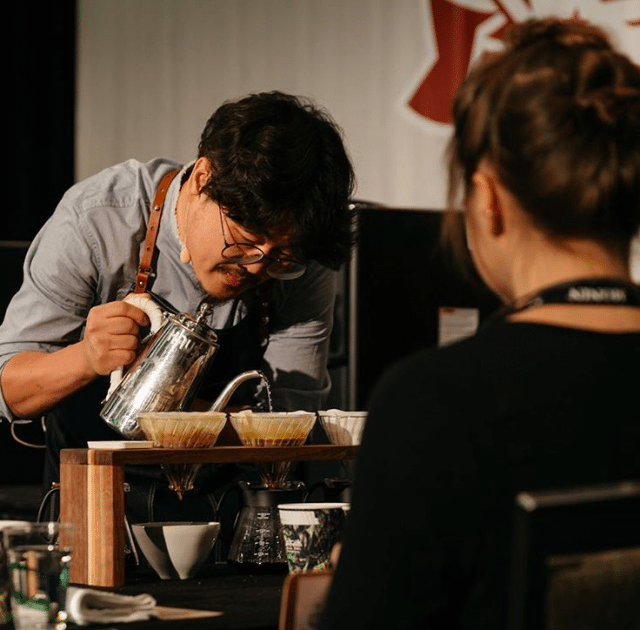

What is a "professional barista"?

Baristas can be called professional baristas only if they have a basic understanding of coffee and must have an understanding of brewing techniques and tools and coffee beans. Professional baristas should first familiarize themselves with the characteristics of their beans. The brain starts to work from the moment the guest orders, and the extraction plan is ready to grind the coffee beans. After brewing, the barista drank it before serving it to the guest just to verify the results of his extraction plan. Only good coffee beans, proper roasting, grinding and brewing techniques can make a good cup of coffee. The hand-flushing technique is useful only if the barista has a certain sensory discrimination ability, fully understand the relationship between the major variables that affect the extraction, fully understand the characteristics of beans, and cooperate with the appropriate extraction scheme.
As 17-year WBrC champion Wang ce said: "the most important thing is the person who drinks that drink. A brewer must proceed from the point of view of the drinker." , "what I need to do is not only to make a cup of coffee, but also to let people know what is good about this coffee. Apart from brewing, this is my homework, my thoughts, and what I have done."
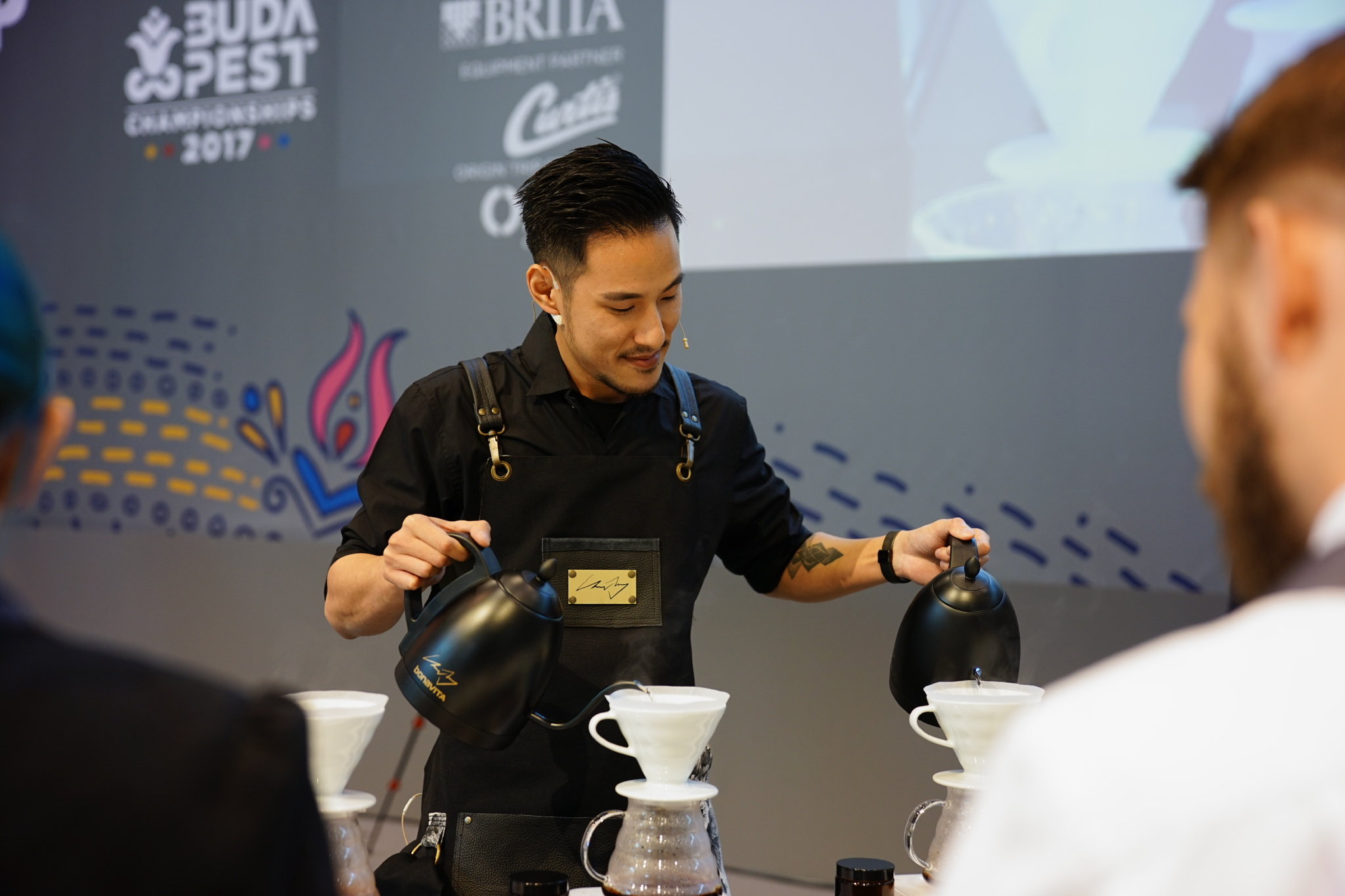
In fact, in the competition, Wang ce did not emphasize any complex cooking techniques: Wang ce adopted the simplest technique, first using good water quality, then fixing all the parameters, such as gouache ratio, grinding degree, water temperature control, and so on, and grinding it very finely. Once injecting water into the filter cup, the stable hand does not need to turn a few more laps, and the coffee powder will pour itself, just pour water into the filter cup. Although Wang ce shows the unique skill of cooking with one hand, his stable hands are only the "basic skills" he has practiced.


Knowledge + technology can embody the specialty.

Choose beans, roast, brew, taste, a good cup of coffee comes from every detail in place. Professional baristas must have rich and meticulous knowledge. Here are the top ten coffee knowledge that I think a professional barista must know:
1. Classification and difference of coffee bean varieties.
two。 What are the common treatments for coffee beans? How will it affect the flavor?
3. How many steps does it take before a coffee fruit becomes a cup of coffee?
4. What are new beans and old beans? What's the difference in flavor?
5. When buying, coffee beans or coffee powder taste better?
6. Is there a shelf life for coffee beans? How to save it?
7. Why does the origin of coffee beans affect the flavor of coffee?
8. Will the roasting degree of coffee beans change the taste? What is the degree of baking?
9. What are the important parameters of coffee brewing?
10. Will different brewing methods change the flavor of coffee?
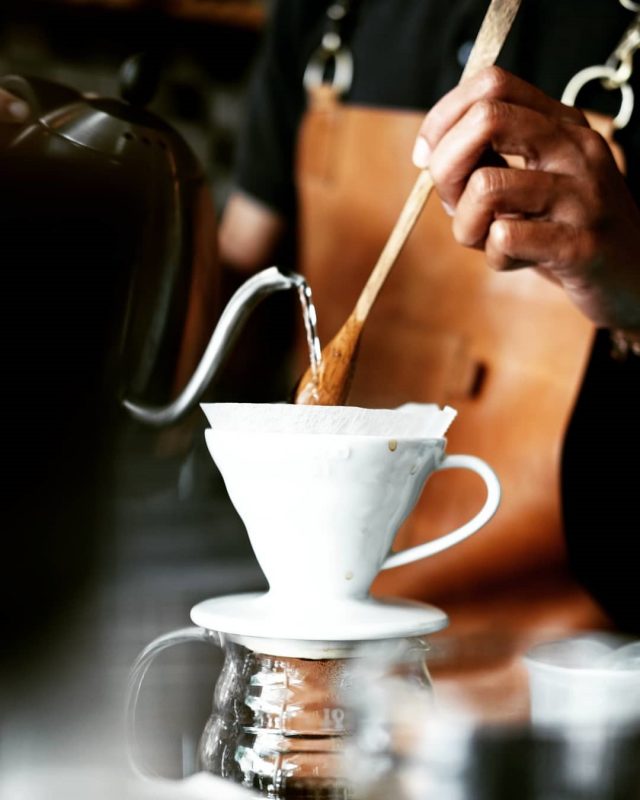
Finally, the question comes. How many knowledge points can you answer? Do you think the most important thing for a professional barista is skill or something else?
Important Notice :
前街咖啡 FrontStreet Coffee has moved to new addredd:
FrontStreet Coffee Address: 315,Donghua East Road,GuangZhou
Tel:020 38364473
- Prev
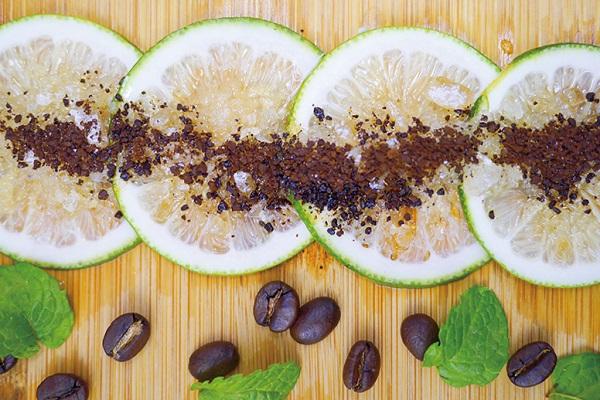
Italian Mafia Snack: Coffee Lemon Slice Mafia tutorial is not the same way to eat coffee!
When life gives you lemons, make lemonade! This western proverb says that when life gives you sour lemons, we can make it into delicious lemonade! In fact, lemon can not only make lemon juice, but also sour sweet and no sense of disobedience.
- Next

What is the pine house hand punch? What are the characteristics of coffee made with pine house style?
Professional coffee knowledge exchange more information about coffee beans Please follow the coffee workshop (Wechat official account cafe_style) Japanese coffee is brewed by hand. Generally, handmade coffee is mainly made by siphon plug kettle, mocha kettle and follicle brewing, and manual brewing coffee can faithfully present the different personalities of different coffee beans in Japanese cafes, mostly single.
Related
- What is the meaning of lactic acid fermentation with coffee bean treatment?
- How to judge the state of foam by sound?
- How does the latte pull out the unicorn pattern? Come to get for a little trick to improve the flower pull!
- Will flower pulling affect the taste of the latte?
- Do you know the history of coffee?
- The difference between honey treatment and sun washing what is raisin honey treatment?
- What kind of milk can a novice use to make coffee foam to keep the foam longer? The correct method and skills of milking tutorial sharing
- Why do washed coffee beans taste sour? Flavor characteristics of washed Coffee
- Introduction to the skill of how to practice the size and height of water injection around the circle of hand-brewed coffee
- How do beginners practice coffee flower drawing from scratch?

